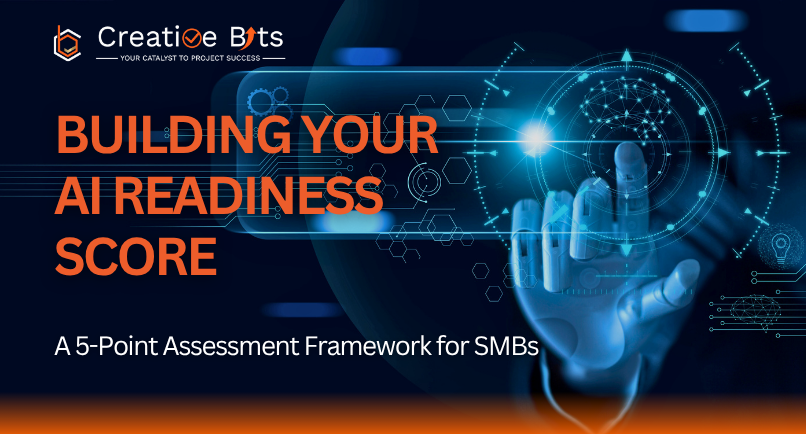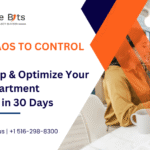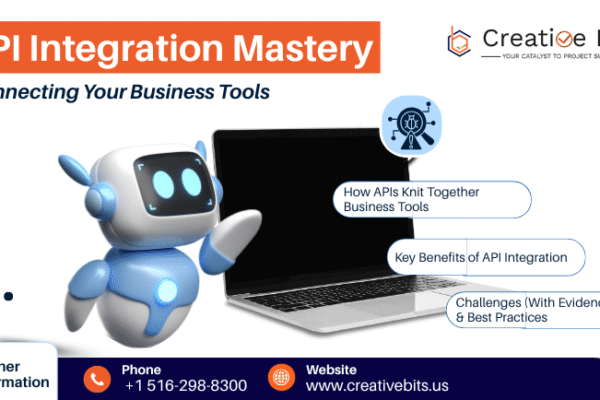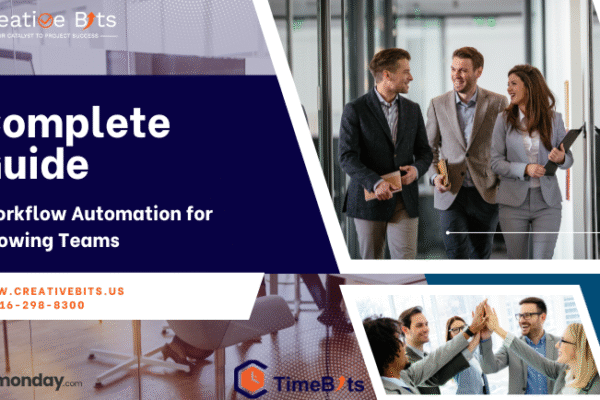An AI readiness score is a comprehensive assessment metric that measures how prepared your business is to successfully adopt and implement artificial intelligence technologies. This score evaluates your organization across five critical dimensions that determine AI implementation success.
Unlike traditional technology assessments, the AI readiness score framework treats AI adoption as a strategic journey rather than a one-time implementation. For small and medium-sized businesses (SMBs), understanding your AI readiness score is the first crucial step toward competitive advantage in 2025's digital landscape.
According to Deloitte's 2025 AI Readiness Index, organizations achieving an AI readiness score above 70 percent are three times more likely to implement AI successfully within twelve months. This statistic underscores why measuring your AI readiness score has become essential for business growth.
Why Your AI Readiness Score Matters Now
The AI readiness score isn't just another business metric—it's your roadmap to digital transformation. As artificial intelligence reshapes industries at unprecedented speed, businesses without a clear AI readiness score risk falling behind competitors who understand their preparation level.
Recent research from McKinsey Global Institute reveals that companies with high AI readiness scores experience 25% faster revenue growth compared to those without structured AI assessment frameworks. This gap continues to widen as AI technologies become more accessible and affordable.
Your AI readiness score directly impacts:
- Implementation success rates
- Return on AI investments
- Time to market for AI initiatives
- Employee adoption and engagement
- Overall competitive positioning
For SMBs specifically, the AI readiness score provides clarity on where to focus limited resources for maximum impact. Rather than attempting broad AI adoption without preparation, businesses can use their AI readiness score to identify quick wins and strategic priorities.
The 5 Dimensions of AI Readiness Score Assessment
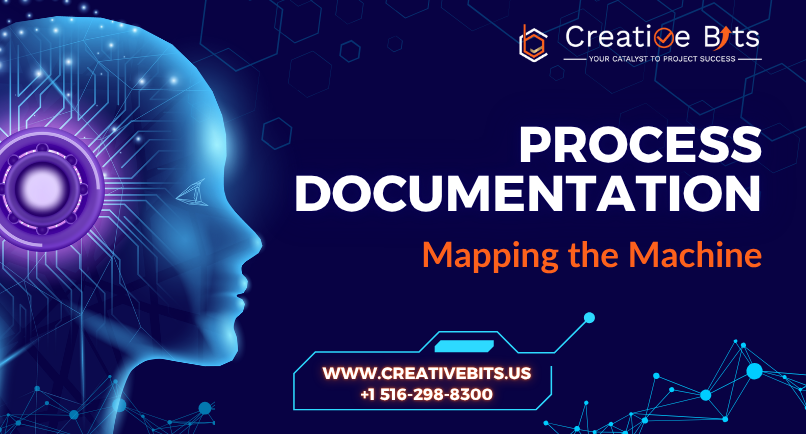
1. Data Maturity: Your AI Fuel Source
Data maturity represents 30% of your overall AI readiness score. Without quality data, even the most sophisticated AI models fail to deliver value. Your AI readiness score in this dimension depends on how well your company collects, organizes, and maintains information.
Key indicators for data maturity in your AI readiness score include:
- Data centralization: Are customer interactions, sales data, and performance metrics integrated?
- Data quality: How accurate and up-to-date is your information?
- Data accessibility: Can teams easily access needed data?
- Data governance: Do you have policies for data management and security?
Gartner's 2025 Data Analytics Report confirms that companies with mature data practices achieve 2.8 times better AI outcomes. To improve this aspect of your AI readiness score, start by:
- Consolidating critical datasets into centralized systems
- Implementing data quality checks and validation processes
- Creating data documentation and dictionaries
- Establishing clear data ownership and governance policies
Small businesses can begin improving their AI readiness score by transitioning from spreadsheets to structured databases. Cloud-based solutions like Google Cloud Platform or Microsoft Azure offer scalable options that grow with your needs.
2. Process Documentation: Mapping the Machine
Process documentation contributes 20% to your AI readiness score calculation. Many SMBs operate on tribal knowledge—informal, undocumented workflows that exist only in employees' minds. This approach severely limits your AI readiness score potential.
The World Economic Forum's 2025 Digital Transformation Report highlights that companies with documented processes implement AI tools 40% faster. Your AI readiness score in this area measures:
- Workflow visibility: Are business processes clearly mapped?
- Standardization: Do you have consistent procedures across departments?
- Measurability: Can you track process performance metrics?
- Optimization readiness: Have you identified automation opportunities?
To boost this component of your AI readiness score:
- Document core business processes using tools like Lucidchart or Miro
- Identify repetitive tasks suitable for automation
- Create standard operating procedures (SOPs) for critical workflows
- Establish process performance metrics and KPIs
Remember, improving your AI readiness score through better process documentation isn't just about technology—it's about creating a foundation that intelligent systems can understand and enhance.
3. Team Capability: Bridging Human and Machine Intelligence
Team capability represents 25% of your AI readiness score. AI transformation succeeds when people embrace technology as a collaborative tool rather than a threat. Your AI readiness score in this dimension evaluates workforce digital literacy and adaptability.
According to PwC's Global AI Jobs Report 2024, 74% of SMB employees feel unprepared for AI tools. This skills gap directly impacts your AI readiness score and implementation success. Key factors include:
- Digital literacy: Basic understanding of AI concepts and capabilities
- Data interpretation skills: Ability to understand AI-generated insights
- Change readiness: Openness to new technologies and workflows
- Continuous learning culture: Commitment to ongoing skill development
Improving your team-related AI readiness score requires:
- Conducting skills assessments to identify gaps
- Implementing targeted training programs through platforms like Coursera or LinkedIn Learning
- Creating AI champion roles within departments
- Fostering a culture of experimentation and learning
Your AI readiness score improves significantly when teams understand they don't need to become data scientists—they need to learn how to collaborate effectively with AI tools.
4. Infrastructure: Readiness for Integration
Infrastructure accounts for 15% of your AI readiness score. This dimension assesses whether your technology stack can support AI implementation and scaling. Modern cloud platforms have democratized AI access, making high AI readiness scores achievable for SMBs.
Amazon Web Services' 2024 SMB Report shows that cloud-based AI adoption reduces deployment costs by 20% compared to on-premise solutions. Your infrastructure AI readiness score depends on:
- Cloud adoption: Leveraging scalable computing resources
- API connectivity: Ability to integrate with AI services
- Security measures: Data protection and compliance capabilities
- System flexibility: Adaptability to new technologies
To enhance this aspect of your AI readiness score:
- Migrate critical systems to cloud platforms
- Ensure API-ready architecture for seamless integrations
- Implement robust cybersecurity measures
- Create disaster recovery and business continuity plans
A strong infrastructure foundation in your AI readiness score ensures you can quickly adopt new AI capabilities as they emerge.
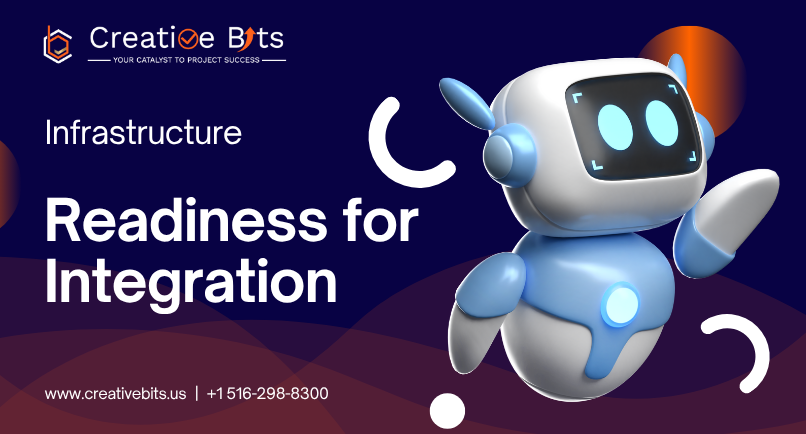
5. Budget Alignment: Investing with Intent
Budget alignment comprises 10% of your AI readiness score but influences overall success significantly. AI adoption requires strategic investment planning rather than one-time purchases. Your AI readiness score here measures financial preparedness and strategic alignment.
Accenture's SMB Technology Outlook 2024 reveals that companies with defined AI budgets achieve 37% better long-term adoption rates. Consider these factors for your AI readiness score:
- Pilot project funding: Resources for proof-of-concept initiatives
- Scaling budget: Plans for expanding successful implementations
- Training investments: Allocation for workforce development
- ROI measurement: Clear success metrics and evaluation criteria
Improving your budget-related AI readiness score involves:
- Starting with small, high-impact pilot projects
- Establishing clear ROI metrics before implementation
- Creating phased investment plans aligned with business goals
- Building internal buy-in through early wins
How to Calculate Your AI Readiness Score
Calculating your AI readiness score involves evaluating each dimension on a 100-point scale, then applying weighted averages based on their relative importance:
AI Readiness Score Formula:
- Data Maturity (30% weight) × Score
- Process Documentation (20% weight) × Score
- Team Capability (25% weight) × Score
- Infrastructure (15% weight) × Score
- Budget Alignment (10% weight) × Score
Total AI Readiness Score = Sum of weighted scores
AI Readiness Score Interpretation:
- 0-40: Foundation Building Required
- 41-60: Emerging Readiness
- 61-80: Strong Preparation
- 81-100: AI-Ready Leader
Most SMBs initially score between 35-55 on their AI readiness score assessment. This baseline provides clear direction for improvement efforts.
From AI Readiness Score to Business Results
Your AI readiness score isn't just a number—it's a strategic tool for transformation. Companies that systematically improve their AI readiness score report measurable benefits:
Short-term gains (3-6 months):
- 15-20% reduction in manual tasks
- Improved data-driven decision making
- Enhanced customer response times
- Better resource allocation
Medium-term benefits (6-12 months):
- 25-30% operational efficiency gains
- New revenue streams through AI-enhanced services
- Competitive differentiation in the market
- Improved employee satisfaction and retention
Long-term advantages (12+ months):
- Sustainable competitive advantage
- Scalable business models
- Innovation leadership in industry
- Exponential growth potential
The key to converting your AI readiness score into results lies in strategic, phased implementation aligned with business objectives.
Next Steps: Improving Your Score
Ready to enhance your AI readiness score? Here's your action plan:
Week 1-2: Assessment
- Conduct initial AI readiness score evaluation
- Identify critical gaps and opportunities
- Prioritize improvement areas based on business impact
Week 3-4: Planning
- Develop an improvement roadmap for each dimension
- Allocate resources and assign responsibilities
- Set measurable goals and timelines
Month 2-3: Foundation Building
- Begin data consolidation and cleaning efforts
- Document core business processes
- Launch initial training programs
- Evaluate infrastructure options
Month 4-6: Pilot Implementation
- Select a high-impact pilot project
- Apply AI tools to specific use cases
- Measure results and gather feedback
- Refine approach based on learnings
Ongoing: Continuous Improvement
- Regular AI readiness score reassessment
- Expand successful implementations
- Deepen team capabilities
- Scale infrastructure as needed
Partner with Experts to Accelerate Your AI Journey
At Creative Bits, we specialize in helping SMBs improve their AI readiness score through comprehensive assessments, strategic planning, and hands-on implementation support. Our proven methodology has helped dozens of businesses transform their AI readiness score from aspiration to achievement.
Whether you're just beginning to explore your AI readiness score or ready to implement advanced solutions, we provide the expertise and guidance needed for success. Our services include:
- Comprehensive AI readiness score assessments
- Custom improvement roadmaps
- AI pilot project implementation
- Team training and change management
- Ongoing support and optimization
Don't let uncertainty about your AI readiness score hold your business back. Contact Creative Bits to schedule your free AI readiness score consultation and discover how prepared your business truly is for the AI revolution.

 monday.com Services
monday.com Services